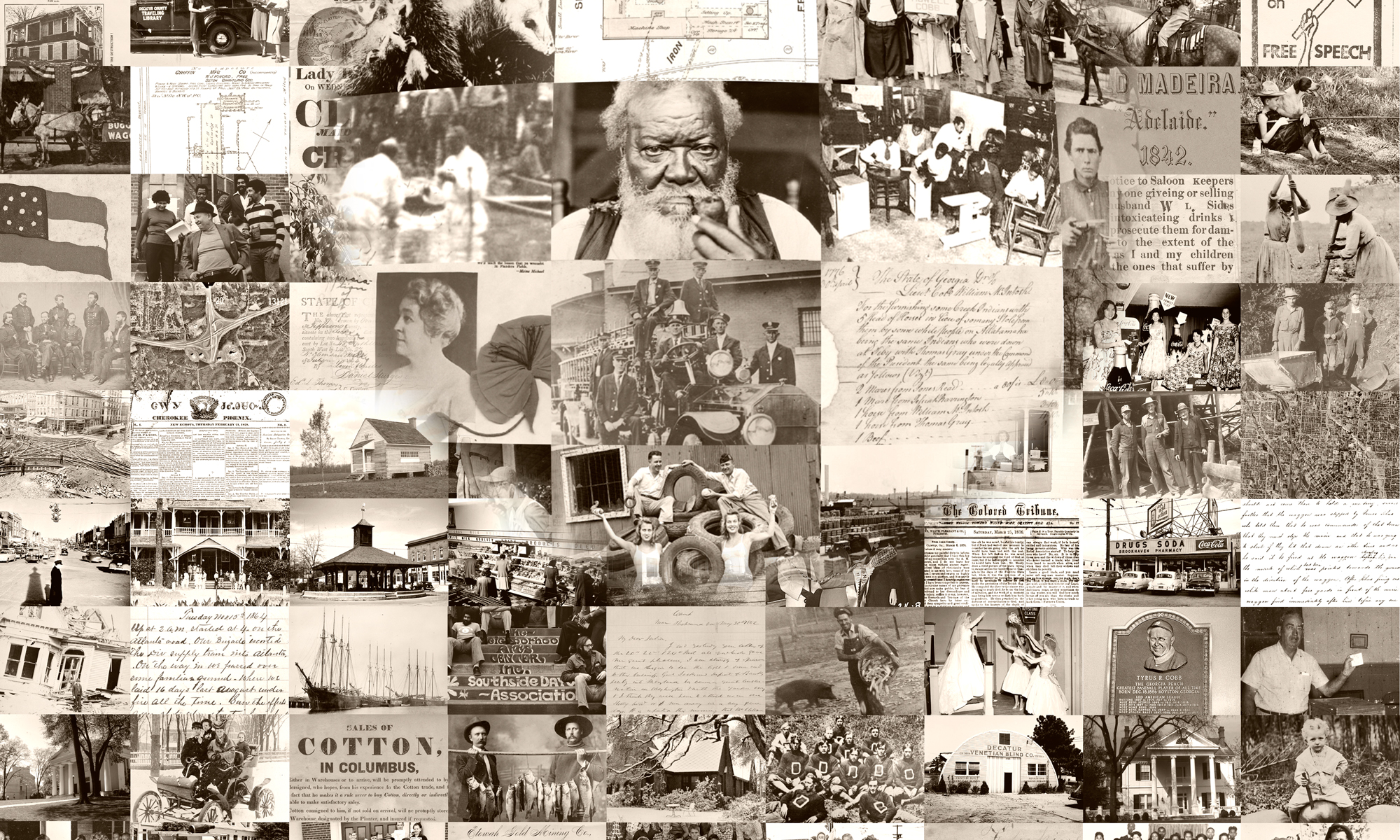The newly redesigned web site of the Digital Library of Georgia (DLG) is now available at https://dlg.usg.edu. The site connects users to a half a million digital objects in more than 700 collections from over 130 institutions and 100 government agencies. The new site is designed to provide quick and direct access to these resources for all audiences and was developed by incorporating input from end users, librarians, and other stakeholders. The redesign incorporates a new logo design for the DLG and improved navigational tools.
Online visitors to the site will now be able to:
- Conduct full-text searching of DLG-hosted collections along with item-level metadata searches.
- Perform textual and visual browsing of DLG databases and other web-based collections and sites. Items can be searched by subject, time period (timeline), geographic location (map browsing), genre, and repository.
- Expect seamless, responsive access to an accessible virtual library on Georgia history and culture that combines DLG databases with resources freely available through other repositories, organizations, and vendors.
- Carry out self-sufficient information seeking that meets the needs of Georgians across a broad range of ages and educational backgrounds and for a variety of uses, including structured learning in schools and higher education, lifelong learning, scholarship, and personal interest.
- Find information for librarians and archivists on digital library standards and best practices and services that DLG provides.
- Locate materials that promote new resources and partners.
“We’re excited about this fresh new design, and think that it will improve the search experience for Georgians and other researchers seeking out the unique and valuable resources within the Digital Library of Georgia,” says Lucy Harrison, Assistant Vice Chancellor for Academic Library Services and Executive Director of GALILEO:
Julie Walker, State Librarian of Georgia notes: “Georgia’s public libraries are excited to support the DLG’s new interface, and will enjoy how simple it is to discover freely available and reusable historical images. Students of all ages will be able to integrate these primary sources into their websites, research, and homework assignments.”
Public libraries around the state are being provided with printed materials, including rack cards and stickers, as well as a freely downloadable digital press kit to encourage use of the new site.
The online press kit, available at
https://sites.google.com/view/dlg-docs/dlg-documentation/promotional-materials/dlg-press-kit,
will include:
- A press release
- A library reference staff training slide deck and webinar
- A one-page handout of new features available on the DLG’s new web site
- A DLG “Quick Facts” document with information about the DLG, its public library partners, communication channels, and our historic newspaper milestones
- A badge graphic to share within posts on social media
- A link to DLG educator resources
- The new Digital Library of Georgia logo
We hope you come and visit our new site!


